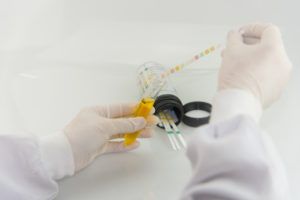The challenge is to realistically engineer microorganisms that use synthetic networks to expand the portfolio of molecules that are currently known to be detected by natural systems, and perfect the networks for improved performance in given industrial settings.
Biological sensors are used across different industrial sectors, capitalising on technical characteristics such as high specificity, robustness and adaptability.
However, the complexity of the biological mechanisms involved in the production of a new biosensor and the resources and time needed to develop and market new biological sensors limit their use on a widespread scale. Modern biotechnology offers tools for developing much more advanced biological sensors.
Scope
The aim is to re-programme microorganisms or synthetic biological systems with properties to be used as biological sensors in critical industrial sectors. Reprogramming microorganisms must comprise sensor, processor and reporter elements. Sensed molecular events will be associated with specific signal processing operations of synthetic circuits; processor elements will integrate multiple signals and reporter elements will be easy to read in low-resource settings. Proposals should:
- Address sensitivity, specificity and the possibility of detecting multiple analytes. Portability and production costs should also be taken into account. Solutions may involve cell consortia, whole-cell, and cell-free systems.
- Include demonstration activities at medium scale in order to confirm the performance and robustness of the reprogrammed microorganisms as biosensors in the selected application. Demonstration activities must incorporate biosafety in the design and development of a biosensor system both at technical and procedural levels.
- Address Social Sciences and Humanities (SSH) elements regarding acceptability of the technologies used by stakeholders and regulatory aspects.
- Proposals submitted under this topic should include a business case and exploitation strategy.
The Commission considers that proposals requesting a contribution from the EU between EUR 6 and 8 million would allow this specific challenge to be addressed appropriately. Nonetheless, this does not preclude submission and selection of proposals requesting other amounts.
Expected Impact
- The development of three or more reprogrammed microorganisms or the development of reprogrammed microorganisms for three or more different biosensors to be used either as biological sensors or for the production of novel molecules used as biological sensors.
- The applicability of the novel biological sensors in at least two different industrial sectors.
- Quantifiable demonstration at medium scale of the increased performance and benefits.
Deadline
11 December 2019 at 17:00 Brussels time
More information







Leave a Reply